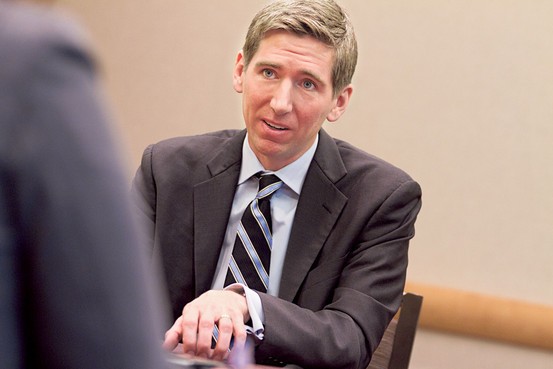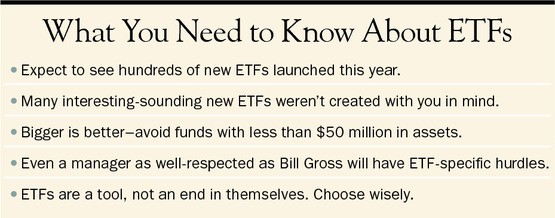Schwab’s Iachini Argues in Favor of AllETF Portfolios
Post on: 19 Апрель, 2015 No Comment

Growth of ETF market to $1 trillion supports all-ETF strategy
Michael Iachini, director of Investment Manager Research for Charles Schwab Investment Advisory
As the popularity of exchange-traded funds grows, some investors may want to consider going all out and putting nothing but ETFs in their portfolios, says Michael Iachini, director of investment manager research at Charles Schwab Investment Advisory Inc .
Iachini offered three ways to build an all-ETF portfolio, ranging from ultra-simple to very fine-tuned, in a Dec. 28 market insight on Schwabs Research & Strategies Web page.
The simplest way is to make just two trades into a total world stock market ETF and a total bond market ETF. The middle of the road approach would consist of about 10 ETFs. The fine-tuned portfolio for engaged investors would include 20 or more ETFs allocated toward market sectors expected to perform best.
For the most part, it comes down to personal taste, Iachini wrote. As a rule, ETFs provide excellent diversification at low ongoing expense, and compared to mutual funds its much easier to see what stocks, bonds or other investments the ETF holds each day. If these are top characteristics you look for in your investments, owning nothing but ETFs may be a straightforward yet flexible solution worth a closer look.
Iachinis portfolio strategies come along as the robust growth of ETFs has caused investors to wonder whether an all-ETF portfolio is possibleor well advised. To be sure, there is strength in the numbers. According to recent Lipper data. U.S.-domiciled mutual funds had a strong fourth quarter in terms of their performance, but they could not keep up with exchange-traded funds in terms of inflows. Equity fund flows into ETFs were close to $37 billion in fourth-quarter 2010 compared to just $18 billion for mutual funds.
As investors move from being out of the market to getting into it, they appear to be risk adverse and thus favor passive, index-based investments like ETFs, said Lipper analyst Matthew Lemieux in a phone interview on Friday with AdvisorOne.com. Extensive marketing efforts on the part of ETF distributors, financial advisors and discount brokers are contributing to this trend, Lemieux added.
To wit, Iachinis interest in ETFs as well as index mutual funds. In his insight, he acknowledged that an all-ETF portfolio means giving up actively managed mutual funds, which may outperform index ETFs through skillful selection of
stocks and bonds. But he stressed the positives of ETFs low ongoing expenses, diversification and transparency compared with actively managed mutual funds higher expenses, possible underperformance and lower transparency.

While it may be true that mutual funds are still dominant over ETFs to the tune of $11 trillion versus $1 trillion, Iachinis all-ETF strategy nevertheless makes total sense, according to Ron DeLegge, editor of ETFGuide.com and a regular contributor to Research magazine.
Its not even a contest, DeLegge said Friday in a phone interview. Of course you want to have an all-ETF portfolio. That should be the foundation of all investors portfolios: a low-cost, index-based portfolio. Whether you use index mutual funds or index ETFs matters not, but the foundation of all portfolios in my belief should be low-cost index funds. History tells us that he who has the lowest costs and lowest tax bill wins.
DeLegge conceded that mutual funds still control the retirement plan landscape. but he noted that ETFs are slowly becoming more accepted.
Lets face it, most 401(k) plans dont now offer ETF plans as an investment choice. You currently get a menu of mutual funds to choose from, and a lot of this has to do with the way the retirement plan highway was built to accommodate mutual funds, DeLegge said.
The systems that third-party administrators are using do not accommodate ETFs, though more and more of them are adopting systems and integrating their platforms to incorporate them, he added.
From an industry perspective, thats one of the single most important developments for the business. And its also important for advisors who recommend ETFs and who want to use ETFs inside of retirement plans like 401(k)s, 457s and 403(b)s, DeLegge said.














